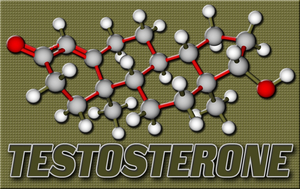Introduction
Tamoxifen, a widely prescribed medication for the treatment and prevention of hormone receptor-positive breast cancer, has proven to be a life-saving intervention for many American men diagnosed with this condition. However, the drug's mechanism of action, which involves blocking the effects of estrogen in the body, can lead to a range of menopausal-like symptoms that can significantly impact a patient's quality of life. In this article, we will explore the common menopausal symptoms experienced by American men undergoing tamoxifen therapy and discuss strategies for managing these challenges effectively.
Understanding Tamoxifen-Induced Menopausal Symptoms
Tamoxifen's anti-estrogenic properties can trigger a variety of symptoms that are typically associated with menopause in women. American men on tamoxifen therapy may experience hot flashes, night sweats, mood swings, and sexual dysfunction, among other symptoms. These side effects can be particularly distressing for men, as they are not accustomed to dealing with such hormonal fluctuations. It is essential for healthcare providers to recognize and address these symptoms to ensure optimal patient outcomes and adherence to treatment.
Managing Hot Flashes and Night Sweats
Hot flashes and night sweats are among the most common and bothersome symptoms reported by American men on tamoxifen therapy. To alleviate these symptoms, patients can try various non-pharmacological interventions, such as dressing in layers, keeping the bedroom cool, and avoiding triggers like spicy foods and caffeine. In some cases, healthcare providers may prescribe medications like venlafaxine or gabapentin to help manage these symptoms effectively.
Addressing Mood Swings and Emotional Well-being
The hormonal changes induced by tamoxifen can also lead to mood swings, irritability, and even depression in some American men. It is crucial for patients to communicate openly with their healthcare team about any emotional challenges they may be facing. Counseling, support groups, and, in some cases, antidepressant medications can be beneficial in managing these symptoms and improving overall well-being during tamoxifen therapy.
Coping with Sexual Dysfunction
Sexual dysfunction, including decreased libido and erectile dysfunction, is another common side effect of tamoxifen therapy in American men. Open communication with partners and healthcare providers is essential in addressing these concerns. In some cases, medications like phosphodiesterase type 5 inhibitors (e.g., sildenafil) may be prescribed to help manage erectile dysfunction. Additionally, couples counseling and sex therapy can be valuable resources for navigating the impact of tamoxifen on intimate relationships.
Maintaining Bone Health
Tamoxifen's anti-estrogenic effects can also lead to bone loss and an increased risk of osteoporosis in American men. To mitigate this risk, healthcare providers may recommend regular bone density screenings and prescribe medications like bisphosphonates or denosumab to help maintain bone health during tamoxifen therapy. Additionally, ensuring adequate intake of calcium and vitamin D through diet and supplements is crucial for supporting bone health.
Conclusion
While tamoxifen therapy has revolutionized the treatment of hormone receptor-positive breast cancer in American men, the associated menopausal-like symptoms can pose significant challenges. By understanding and addressing these symptoms through a combination of lifestyle modifications, supportive care, and, when necessary, pharmacological interventions, healthcare providers can help their patients navigate the menopausal challenges of tamoxifen therapy more effectively. Open communication, patient education, and a multidisciplinary approach are key to optimizing quality of life and treatment outcomes for American men undergoing this life-saving therapy.
Contact Us Today For A Free Consultation

- Tamoxifen's Role in Reducing Breast Cancer Recurrence in American Males [Last Updated On: February 22nd, 2025] [Originally Added On: February 22nd, 2025]
- Unveiling the Complexity of Tamoxifen Side Effects: A Professional Medical Review [Last Updated On: March 2nd, 2025] [Originally Added On: March 2nd, 2025]
- Exploring Tamoxifen: Mechanisms, Applications, and Considerations in Hormone Receptor-Positive Breast Cancer Treatment and Beyond [Last Updated On: March 3rd, 2025] [Originally Added On: March 3rd, 2025]
- Unveiling Tamoxifen: A Revolutionary Approach to Combat Breast Cancer in American Men [Last Updated On: March 4th, 2025] [Originally Added On: March 3rd, 2025]
- Exploring Long-Term Tamoxifen Use and Effects in American Males [Last Updated On: March 4th, 2025] [Originally Added On: March 4th, 2025]
- Exploring Tamoxifen's Role in Male Health: Therapy and Side Effects Management [Last Updated On: March 5th, 2025] [Originally Added On: March 5th, 2025]
- Exploring Tamoxifen's Role in Treating Hormone-Sensitive Cancers Among Adolescents [Last Updated On: March 6th, 2025] [Originally Added On: March 6th, 2025]
- Tamoxifen in Male Breast Cancer: Efficacy, Side Effects, and Future Directions [Last Updated On: March 7th, 2025] [Originally Added On: March 7th, 2025]
- Unveiling Tamoxifen Resistance in Male Breast Cancer: Mechanisms, Challenges, and Future Strategies [Last Updated On: March 8th, 2025] [Originally Added On: March 8th, 2025]
- Exploring Tamoxifen's Role Pre and Post-Surgery: Benefits, Safety, and New Applications [Last Updated On: March 9th, 2025] [Originally Added On: March 9th, 2025]
- Unveiling the Molecular Mechanisms of Tamoxifen in Treating Hormonal Cancers Among American Males [Last Updated On: March 11th, 2025] [Originally Added On: March 11th, 2025]
- Optimizing Tamoxifen Dosage for Effective Breast Cancer Treatment in American Males [Last Updated On: March 12th, 2025] [Originally Added On: March 12th, 2025]
- Tamoxifen's Potential in Pediatric Oncology: Hope for American Males [Last Updated On: March 13th, 2025] [Originally Added On: March 13th, 2025]
- Unveiling the Risks: A Comprehensive Look at Long-Term Tamoxifen Use in American Males [Last Updated On: March 15th, 2025] [Originally Added On: March 15th, 2025]
- Tamoxifen: Understanding Its Role in Male Breast Cancer Treatment and Prevention [Last Updated On: March 16th, 2025] [Originally Added On: March 16th, 2025]
- Tamoxifen Side Effects in American Males: Management and Coping Strategies [Last Updated On: March 17th, 2025] [Originally Added On: March 17th, 2025]
- Tamoxifen: Benefits and Side Effects for American Males in Breast Cancer Treatment [Last Updated On: March 18th, 2025] [Originally Added On: March 18th, 2025]
- Tamoxifen's Impact on Men's Health: Benefits, Risks, and Management Strategies [Last Updated On: March 19th, 2025] [Originally Added On: March 19th, 2025]
- Tamoxifen Interactions in American Males: Optimizing Breast Cancer Treatment [Last Updated On: March 19th, 2025] [Originally Added On: March 19th, 2025]
- Tamoxifen's Role in Reducing Breast Cancer Mortality in American Men [Last Updated On: March 19th, 2025] [Originally Added On: March 19th, 2025]
- Tamoxifen's Expanding Role in Men's Health: Breast Cancer, Prostate, and Infertility [Last Updated On: March 20th, 2025] [Originally Added On: March 20th, 2025]
- Tamoxifen's Role in Inhibiting Cancer Growth: Implications for American Males [Last Updated On: March 20th, 2025] [Originally Added On: March 20th, 2025]
- Tamoxifen in American Males: Benefits and Challenges in Recurrent Cancer Treatment [Last Updated On: March 21st, 2025] [Originally Added On: March 21st, 2025]
- Tamoxifen's Journey: From Contraceptive to Male Breast Cancer Treatment [Last Updated On: March 21st, 2025] [Originally Added On: March 21st, 2025]
- Tamoxifen's Role in Hormone Therapy for American Males: Benefits and Considerations [Last Updated On: March 21st, 2025] [Originally Added On: March 21st, 2025]
- Tamoxifen's Role in Treating and Preventing Male Breast Cancer: Insights and Advances [Last Updated On: March 22nd, 2025] [Originally Added On: March 22nd, 2025]
- Tamoxifen's Efficacy in Treating Male Breast Cancer: Clinical Insights and Future Directions [Last Updated On: March 22nd, 2025] [Originally Added On: March 22nd, 2025]
- Tamoxifen in American Males: Benefits, Risks, and Considerations for Breast Cancer Treatment [Last Updated On: March 22nd, 2025] [Originally Added On: March 22nd, 2025]
- Tamoxifen's Impact on Bone Health in American Males: Strategies for Prevention and Management [Last Updated On: March 23rd, 2025] [Originally Added On: March 23rd, 2025]
- Tamoxifen's Potential in Treating Rare Cancers: Insights and Implications for American Males [Last Updated On: March 23rd, 2025] [Originally Added On: March 23rd, 2025]
- Tamoxifen Drug Interactions in American Males: Clinical Management and Optimization [Last Updated On: March 23rd, 2025] [Originally Added On: March 23rd, 2025]
- Tamoxifen's Potential in Leukemia Treatment for American Males: Mechanisms and Clinical Insights [Last Updated On: March 23rd, 2025] [Originally Added On: March 23rd, 2025]
- Tamoxifen's Emerging Role in Treating Endocrine Cancers in American Males [Last Updated On: March 23rd, 2025] [Originally Added On: March 23rd, 2025]
- Tamoxifen's Role in Treating Male Breast Cancer: Benefits and Management [Last Updated On: March 24th, 2025] [Originally Added On: March 24th, 2025]
- Tamoxifen: Hope and Strategy for American Men with Breast Cancer [Last Updated On: March 24th, 2025] [Originally Added On: March 24th, 2025]
- Tamoxifen: A Vital Tool in Managing Men's Health Challenges [Last Updated On: March 24th, 2025] [Originally Added On: March 24th, 2025]
- Tamoxifen's Role in Treating and Preventing Male Breast Cancer: A Comprehensive Guide [Last Updated On: March 24th, 2025] [Originally Added On: March 24th, 2025]
- Tamoxifen: A Key Treatment for Breast Cancer in American Males [Last Updated On: March 25th, 2025] [Originally Added On: March 25th, 2025]
- Tamoxifen's Role in Treating Hormone-Sensitive Cancers in American Males [Last Updated On: March 25th, 2025] [Originally Added On: March 25th, 2025]
- Exploring Tamoxifen Alternatives for Male Breast Cancer Treatment in American Males [Last Updated On: March 25th, 2025] [Originally Added On: March 25th, 2025]
- Tamoxifen's Dual Impact on Ovarian Function: Fertility and Menopause Considerations [Last Updated On: March 25th, 2025] [Originally Added On: March 25th, 2025]
- Tamoxifen's Role in Treating Gynecomastia: Efficacy and Considerations for American Males [Last Updated On: March 25th, 2025] [Originally Added On: March 25th, 2025]
- Tamoxifen's Role in Male Breast Cancer: Efficacy, Myths, and Adherence in the US [Last Updated On: March 25th, 2025] [Originally Added On: March 25th, 2025]
- Tamoxifen: From Fertility Drug to Cancer Treatment in American Males [Last Updated On: March 26th, 2025] [Originally Added On: March 26th, 2025]
- Tamoxifen in Male Cancer Care: Benefits, Risks, and Future Directions [Last Updated On: March 26th, 2025] [Originally Added On: March 26th, 2025]
- Personalized Tamoxifen Therapy Enhances Breast Cancer Treatment for American Men [Last Updated On: March 26th, 2025] [Originally Added On: March 26th, 2025]
- Tamoxifen: Essential Facts and Benefits for American Males with Breast Cancer [Last Updated On: March 26th, 2025] [Originally Added On: March 26th, 2025]
- Tamoxifen: Revolutionizing Hormone Therapy for Male Breast Cancer in America [Last Updated On: March 26th, 2025] [Originally Added On: March 26th, 2025]
- Tamoxifen in American Men: Benefits, Risks, and Long-Term Health Implications [Last Updated On: March 26th, 2025] [Originally Added On: March 26th, 2025]
- Tamoxifen's Role in Treating Male Breast Cancer: Molecular Insights for American Men [Last Updated On: March 26th, 2025] [Originally Added On: March 26th, 2025]
- Tamoxifen Therapy for Advanced Hormone-Sensitive Cancers in American Males: Benefits and Risks [Last Updated On: March 26th, 2025] [Originally Added On: March 26th, 2025]
- Tamoxifen Therapy: A Preventive Approach to Breast Cancer in High-Risk Men [Last Updated On: March 27th, 2025] [Originally Added On: March 27th, 2025]
- Strategies to Overcome Tamoxifen Resistance in American Males with Breast Cancer [Last Updated On: March 27th, 2025] [Originally Added On: March 27th, 2025]
- Tamoxifen: A Key Treatment for Advanced Breast Cancer in American Men [Last Updated On: March 27th, 2025] [Originally Added On: March 27th, 2025]
- Tamoxifen Use and Cataract Risk in American Males: A Comprehensive Analysis [Last Updated On: March 27th, 2025] [Originally Added On: March 27th, 2025]
- Tamoxifen's Molecular Dynamics and Therapeutic Benefits for American Males [Last Updated On: March 27th, 2025] [Originally Added On: March 27th, 2025]
- Tamoxifen's Role in Transforming Male Breast Cancer Treatment in America [Last Updated On: March 27th, 2025] [Originally Added On: March 27th, 2025]
- Tamoxifen's Role in Managing Estrogen Fluctuations in American Males: Benefits and Considerations [Last Updated On: March 27th, 2025] [Originally Added On: March 27th, 2025]
- Tamoxifen Use and Depression in American Men: A Critical Oncology Concern [Last Updated On: March 28th, 2025] [Originally Added On: March 28th, 2025]
- Tamoxifen: Gold Standard in Male Breast Cancer Treatment and Its Long-Term Benefits [Last Updated On: March 28th, 2025] [Originally Added On: March 28th, 2025]
- Tamoxifen in Early-Stage Breast Cancer Treatment for American Males: Overview and Management [Last Updated On: March 28th, 2025] [Originally Added On: March 28th, 2025]
- Genomic Predictors of Tamoxifen Response in American Males with Breast Cancer [Last Updated On: March 28th, 2025] [Originally Added On: March 28th, 2025]
- Tamoxifen's Role in Treating Male Breast Cancer: Efficacy and Considerations for American Men [Last Updated On: March 29th, 2025] [Originally Added On: March 29th, 2025]
- Tamoxifen's Potential in Treating Advanced Hormonal Cancers in American Males [Last Updated On: March 29th, 2025] [Originally Added On: March 29th, 2025]
- Tamoxifen Toxicity in American Males: Mechanisms, Risks, and Management Strategies [Last Updated On: March 31st, 2025] [Originally Added On: March 31st, 2025]
- Tamoxifen's Endocrine Effects on American Male Breast Cancer Patients: Insights and Management [Last Updated On: April 1st, 2025] [Originally Added On: April 1st, 2025]
- Tamoxifen: A New Hope for Male Fertility in American Men [Last Updated On: April 1st, 2025] [Originally Added On: April 1st, 2025]
- Tamoxifen Therapy in American Males: Molecular Determinants and Personalized Treatment Strategies [Last Updated On: April 1st, 2025] [Originally Added On: April 1st, 2025]
- Tamoxifen: A Vital Tool in Treating and Preventing Male Breast Cancer [Last Updated On: April 3rd, 2025] [Originally Added On: April 3rd, 2025]
- Enhancing Tamoxifen Efficacy in American Males with Breast Cancer Using Adjunct Therapies [Last Updated On: April 5th, 2025] [Originally Added On: April 5th, 2025]
- Tamoxifen: A Vital Tool in Preventing Breast Cancer in American Men [Last Updated On: April 6th, 2025] [Originally Added On: April 6th, 2025]
- Tamoxifen's Cardiovascular Impact on American Males: Benefits, Risks, and Management [Last Updated On: April 8th, 2025] [Originally Added On: April 8th, 2025]
- Tamoxifen Therapy: A Key Treatment for Male Breast Cancer in the US [Last Updated On: April 9th, 2025] [Originally Added On: April 9th, 2025]
- Tamoxifen in American Males: Breast Cancer Benefits vs. Endometrial Cancer Risks [Last Updated On: April 9th, 2025] [Originally Added On: April 9th, 2025]
- Tamoxifen's Role in Treating Breast Cancer in American Males: Mechanisms and Impacts [Last Updated On: April 9th, 2025] [Originally Added On: April 9th, 2025]
- Tamoxifen: A Vital Treatment for Breast Cancer in American Men [Last Updated On: April 9th, 2025] [Originally Added On: April 9th, 2025]
- Tamoxifen's Efficacy in Treating Advanced Breast Cancer in American Males: Case Studies [Last Updated On: April 10th, 2025] [Originally Added On: April 10th, 2025]
- Tamoxifen's Role in Chemoprevention for American Males: Breast Cancer Risk Reduction [Last Updated On: April 10th, 2025] [Originally Added On: April 10th, 2025]
- Tamoxifen in Men: Breast Cancer Treatment, Side Effects, and Holistic Health Management [Last Updated On: April 13th, 2025] [Originally Added On: April 13th, 2025]
- Tamoxifen's Role in Preventing Cancer in American Men: A Comprehensive Overview [Last Updated On: April 13th, 2025] [Originally Added On: April 13th, 2025]
Word Count: 534





















